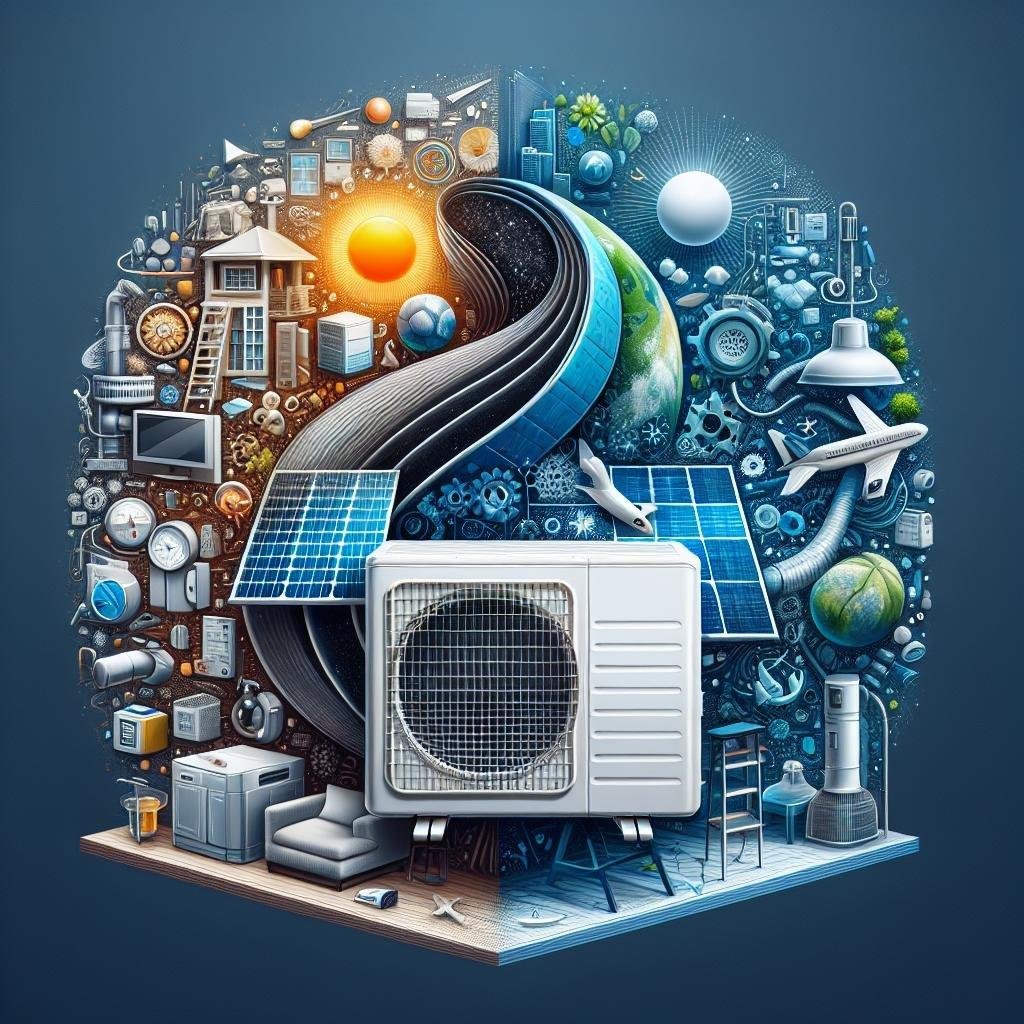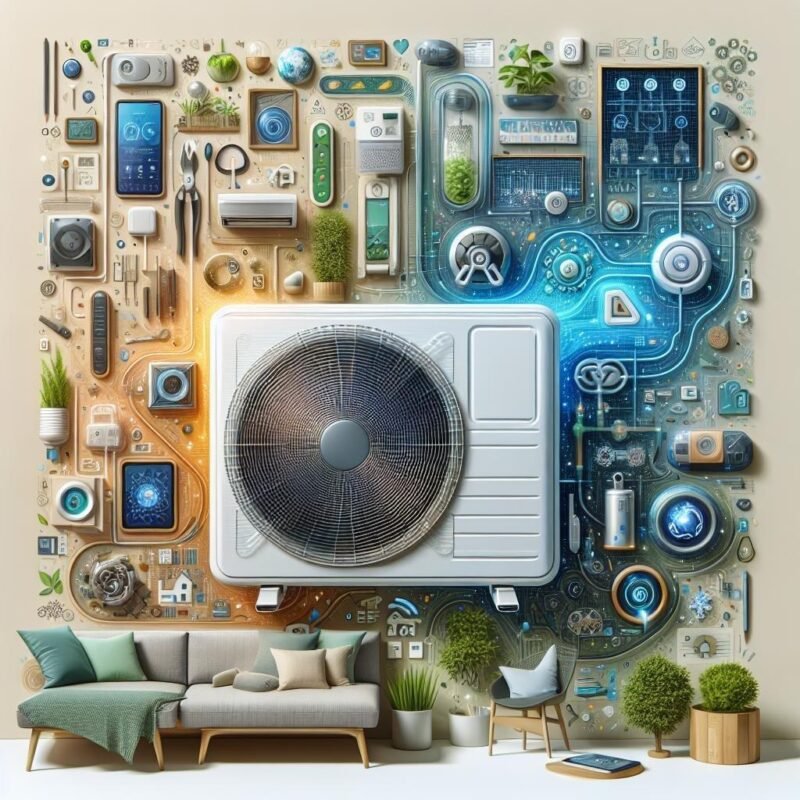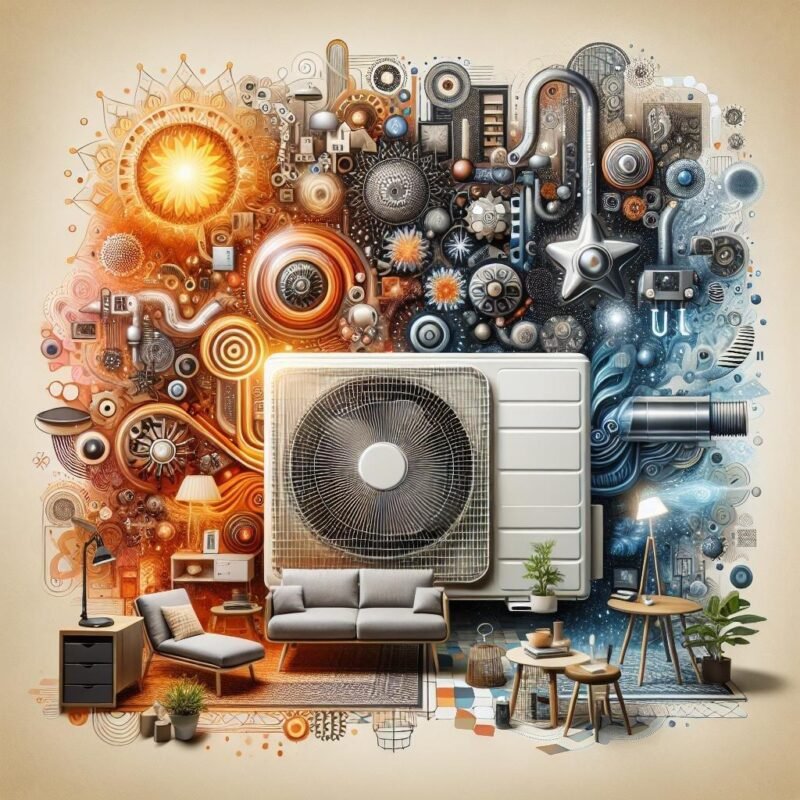Can a mini split AC unit be connected to solar panels?

Picture this: your cozy home bathed in sunlight, while that same golden rays power your perfect indoor climate. As our world embraces greener solutions, more homeowners are wondering whether they can marry their mini split AC units with solar panels - a match seemingly made in eco-heaven. From rooftop to room temperature, let’s explore how these two modern marvels can work together to keep you cool while Mother Nature picks up the energy tab.
Powering Your Cool Oasis: Mini Split AC Meets Solar Energy
Picture this: harnessing the sun’s boundless energy to create your perfect indoor climate. By connecting your ductless air conditioning system to solar panels, you’re not just making a smart environmental choice – you’re orchestrating a symphony of sustainable comfort. the seamless integration between photovoltaic technology and modern mini split systems opens up a world of possibilities, where clean energy powers your cooling needs while keeping those electricity bills in check.
The magic happens when your solar setup meets the efficient power demands of your mini split unit. Today’s solar-ready air conditioners are designed to play nicely with residential PV systems, offering:
- Direct DC power compatibility
- smart power consumption tracking
- Optimized performance during peak sun hours
- Battery storage integration options
| System Size | Solar Panels Needed | Daily Output |
|---|---|---|
| 9,000 BTU | 4-6 panels | 3-4 kWh |
| 12,000 BTU | 6-8 panels | 4-5 kWh |
From Grid to Sun: Understanding the Technical Requirements for Solar-Powered Mini Splits
Successfully integrating a mini split system with solar panels requires careful consideration of power specifications and technical requirements. A typical 18,000 BTU mini split unit consumes approximately 1,500-2,000 watts during operation,demanding a robust solar setup to maintain consistent performance. To properly size your solar array, you’ll need to account for:
- Peak power consumption during startup cycles
- Daily runtime hours and energy usage patterns
- Battery storage capacity for nighttime operation
- Inverter specifications and compatibility
Your solar configuration must align with the mini split’s electrical specifications, typically requiring a pure sine wave inverter and adequate surge capacity. Modern mini splits frequently enough feature variable-speed compressors that can adapt their power consumption, making them more compatible with solar setups. Though, it’s crucial to factor in voltage requirements and ensure your system includes:
| Component | minimum Requirement |
|---|---|
| Solar Array | 3kW system |
| Battery Bank | 400Ah/48V |
| Inverter Rating | 3000W pure sine |
Maximize Efficiency and Savings: Best Solar Panel Setup for Your mini Split System
Getting the most out of your solar-powered mini split starts with smart panel configuration.A south-facing installation at a 30-45 degree angle typically yields optimal sunlight exposure throughout the day. Consider these key factors for peak performance:
- Calculate total wattage needs (BTU rating × 1.2)
- Account for peak summer demand
- Include a 20% power buffer
- Use micro-inverters for shade tolerance
The right setup isn’t just about panel placement – it’s about creating a system that seamlessly matches your cooling needs while keeping costs down.A hybrid grid-tied configuration lets you tap into utility power when needed while banking excess solar production. Pair your array with a smart battery storage solution to power your mini split during cloudy days and nighttime hours, ensuring constant comfort without relying solely on the grid.
| Panel Setup | Daily Output | Best For |
|---|---|---|
| 4-panel array | 4-6 kWh | 12K BTU unit |
| 6-panel array | 6-9 kWh | 18K BTU unit |
| 8-panel array | 8-12 kWh | 24K BTU unit |
Smart Integration Solutions: Essential Components and Installation Tips for a Seamless Solar Mini Split
Connecting your mini split to solar power requires careful consideration of key components that work together harmoniously. A properly sized solar PV array forms the foundation, typically requiring 2-3 kW of capacity per ton of cooling. The setup also needs a charge controller to regulate power flow, deep-cycle batteries for energy storage, and a pure sine wave inverter matched to your mini split’s specifications. Professional integrators reccommend using smart monitoring systems that track both solar production and mini split consumption, allowing you to optimize performance and detect potential issues early.
For optimal installation results, start by mounting panels where they’ll receive maximum sunlight exposure, typically on south-facing roofs with a 30-45 degree tilt. Professional wiring with appropriate gauges and weatherproof conduits ensures safe power transmission. Consider these essential elements:
- Solar micro-inverters for enhanced efficiency
- Smart thermostats with energy monitoring
- Battery backup systems for nighttime operation
- Proper grounding and surge protection
| Component | Typical Capacity | Function |
|---|---|---|
| Solar Array | 2-3 kW | Power Generation |
| Battery Bank | 5-10 kWh | Energy Storage |
| Inverter | 3-4 kW | Power Conversion |
Q&A
Q&A: Can a Mini Split AC Unit Be Connected to Solar Panels?
Q: What’s the buzz about mini split AC units and solar panels? Can they really work together?
A: Absolutely! Mini split AC units and solar panels are like peanut butter and jelly — they complement each other beautifully! By pairing the efficiency of mini splits with the renewable energy of solar panels, you can create a cozy, pleasant home while giving Mother Nature a big high-five!
Q: How does this dynamic duo actually work?
A: Great question! Here’s the scoop: Mini split AC units run on electricity, and that’s where your solar panels come into play. When the sun shines, your solar panels convert sunlight into electricity, which can power your mini split. Want some cool air during those hot, sunny days? Your solar system has got your back, keeping your home chilly without running up your electricity bill!
Q: Do I need special equipment to connect them, or is it straightforward?
A: It’s a bit of both! While the concept is simple, the installation may require some expertise. You’ll want to work with a professional who knows how to integrate your solar power system with your mini split. They’ll ensure everything is set up safely and efficiently, so you can kick back and relax!
Q: Will my solar panels generate enough energy to run my mini split?
A: It depends on a few factors, like the size of your solar panel system, your local climate, and how often you use your AC. In many cases, especially in sunny areas, solar panels can generate enough electricity to not only power your mini split but also offset a important chunk of your overall energy usage. It’s all about striking that sunny balance!
Q: What are the benefits of connecting a mini split AC unit to solar panels?
A: Oh, where do we begin? First, you can save a ton on your energy bills. Second,you’re using clean,renewable energy that reduces your carbon footprint. Plus, it means you can stay comfy on those sticky summer days without guilt! You could even say it’s a win-win-win situation!
Q: Are there any downsides or things to watch out for?
A: As with any system, there are a few potential points to consider. the initial setup cost might be higher if you’re installing both systems simultaneously. Additionally, you’ll want to ensure that your solar system is properly sized to handle your energy needs. And of course, installation should be done by certified professionals to maintain safety and efficiency!
Q: Any final advice for someone considering this combo?
A: Absolutely! Do your research and consult with professionals to design a system tailored to your energy needs. Enjoy the great feeling of going green while staying cool, and always keep an eye on your energy consumption. With a little planning, you can have an eco-kind haven that’s just the right temperature!
—
Now, roll up those sleeves, soak in the sunshine, and get ready to chill out with your new solar-powered oasis! 🌞❄️
The conclusion
As we wrap up our exploration of the delightful synergy between mini-split AC units and solar panels, it’s clear that embracing the sun’s energy can lead to a refreshing, eco-friendly way to stay cool. By harnessing solar power, you’re not just beating the heat; you’re also taking proactive steps toward a greener future. Whether you’re nestled in a sun-soaked location or making the most of your roof space, the combination of mini-split technology and solar energy offers a harmonious solution to your climate control needs.
So, as you contemplate your options, remember that the future is radiant—and it can be as cool as you want it to be! With a clear understanding of the connection, possibilities, and savings this duo can bring, you’re empowered to make informed choices that benefit both your comfort and the planet. Here’s to sunny days, energy savings, and a blissfully cool home! Stay cool and stay green! 🌞❄️






















